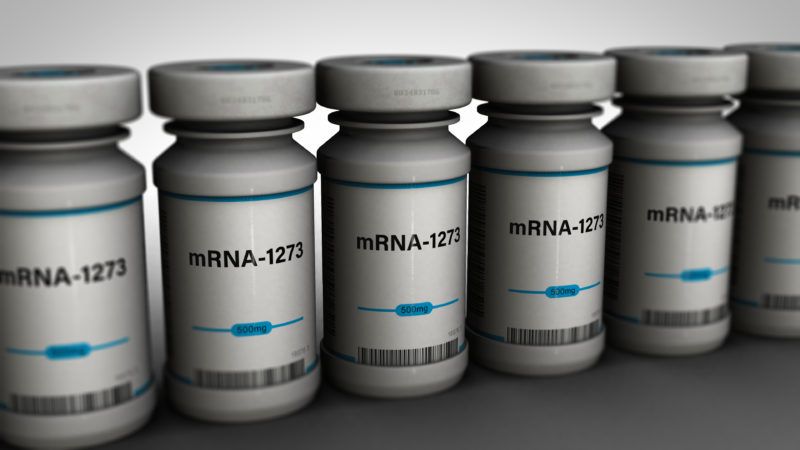Are We Seeing Irrational Exuberance Over COVID-19 Coronavirus Vaccine News?
Stocks rise steeply on good news about mRNA vaccines.

The Dow Jones surged 900 points today in response to positive news about a coronavirus candidate vaccine being developed by Moderna Therapeutics. Early this morning, the company reported that eight patients in a phase 1 safety trial of its vaccine generated neutralizing antibodies to the virus comparable to the levels found in people who had recovered from infection. Basically, the vaccine produces an immune response equal to that provoked by natural infection with the virus.
Moderna's vaccine is based on a synthetic version of the messenger RNA (mRNA) that the coronavirus uses to construct the proteins that enable it to infect human cells. The injected mRNA tricks the body into making some of the viral proteins that then induce the immune system to produce antibodies in response to them. Antibodies bind themselves onto attacking viruses and bacteria, disabling them or marking them for death by other parts of the immune system, like the cell-devouring macrophages.
Moderna is not alone in pursuing an mRNA vaccine against the COVID-19 coronavirus. Its announced success enhances the prospect that other mRNA vaccine manufacturers could also do well. For example, Pfizer has teamed up with with the German company BioNTech to develop four different coronavirus mRNA vaccines. Phase 1 and 2 clinical trials in the U.S. designed to determine the safety, immunogenicity, and optimal dose level of the four vaccine candidates were launched earlier this month. And another German company, CureVac, plans to initiate phase 1 and 2 clinical trials for its mRNA coronavirus vaccine in June.
The promise of mRNA vaccines is that they are faster, cheaper, and safer to produce than are conventional vaccines. Conventional vaccines are finicky to make. Manufacturers have to figure out how to grow viruses in eggs or mammalian cells, purify and weaken them so that they don't cause infection when injected, and then scale up production to make millions of doses. This can take years to achieve.
In contrast, templates for the production of the synthetic viral mRNA to be used in a vaccine can be quickly developed and scaled up with relative ease. Moderna announced that it has partnered with Switzerland-based pharmaceutical manufacturer Lonza with the goal of producing a billion doses per year of its coronavirus vaccine. Pfizer and BioNTech are also scaling up to produce millions of vaccine doses by October 2020, increasing to hundreds of millions in 2021. And CureVac says that its manufacturing facility can potentially supply several hundred million doses per year.
Despite all the excitement, keep in mind that no mRNA vaccines have ever been deployed. Nevertheless, investors apparently believe (at least for today) that the mRNA technology will work and that vaccines against the coronavirus scourge will be forthcoming sooner rather than later. Let's hope that this run-up in stock prices turns out to be an example of rational exuberance.


Show Comments (44)